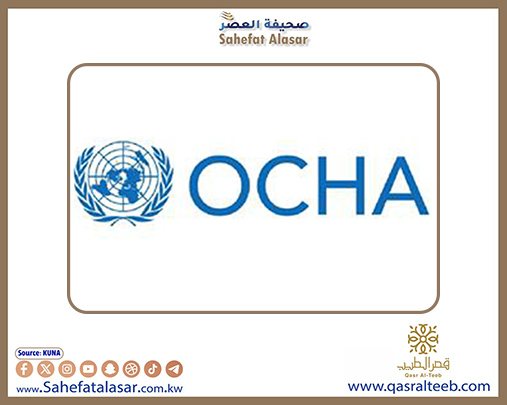


UN OCHA: 85% of Gaza Under Evacuation Orders or Military Zones, Severely Restricting Humanitarian Access
The United Nations Office for the Coordination of Humanitarian Affairs (OCHA) reported Wednesday that 85% of Gaza's territory is currently subject to evacuation orders or falls within military zones, severely impeding civilians' ability to access basic humanitarian assistance.
In its latest update, OCHA noted that Israeli occupation authorities issued new evacuation orders Tuesday evening for two neighborhoods in Khan Younis sheltering approximately 80,000 people. The office warned these displacement directives are placing immense strain on vital services and forcing civilians into increasingly confined areas of the Gaza Strip.
OCHA cited water, sanitation and hygiene (WASH) colleagues on the ground reporting that the "Al-Satar Reservoir" has become inaccessible due to the latest evacuation order. The facility serves as Khan Younis' main water distribution hub and critical supply point. Damage to this reservoir could collapse the city's entire water distribution system with severe humanitarian consequences.
The UN office reported that between the collapse of the March ceasefire and yesterday, approximately 714,000 Palestinians have been forcibly displaced across Gaza. Existing shelters face extreme overcrowding and unsanitary conditions, creating grave public health risks.
OCHA emphasized that unrestricted humanitarian access through multiple crossings over a sustained period remains absolutely critical to meet population needs and prevent further deterioration of the already desperate situation.
The office further warned that dwindling fuel supplies continue to disrupt relief operations, severely constraining the ability of UN agencies and humanitarian partners to respond. OCHA noted Israeli authorities today blocked an attempt to deliver remaining fuel stocks to northern Gaza.
The humanitarian coordination office stressed that unless fuel supplies are immediately replenished, Gaza risks a complete communications blackout. This would severely hinder humanitarian access and coordination while preventing affected communities from receiving critical information.
